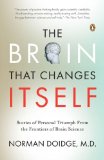

You’ll often find people who say they don’t learn well via audio.
That they need to read a transcript instead to understand something better.
That’s the silliest thing I’ve ever heard.
And there are three reasons why.
1) The way in which we process audio separate from reading.
2) The way in which we ‘sit down’ to listen to audio.
3) So-called ‘audio learners’ find reading as well as audio just as easy.
The way in which we process audio separate from reading.
Till very recently there was this crazy myth that we somehow mishmashed the data and stored it in our brain, no matter if it was audio, or video, or text. That information was information, and it just got stored in one area of our brain. Modern research (because of better measurement tools) have shown that different areas of the brain light up when we listen to the exact words in audio, and another part of the brain lights up when we process video. And then quite another when we process text.
The brain actually creates ‘brain maps’ that make richer connections when it can process greater depth and range. So instead of one source of information, the brain accesses many sources almost simultaneously. And those that stubbornly stick their ‘I’m a reader’ not a listener, are just losing out for their stubborness factor.
But how do we know they’re being stubborn?
Because we know how damaged brains work. So in autistic children for instance, the brain does learn better via audio than learning. But most of us don’t have damaged brains. We have biased brains. This means we’re not willing to push our brains outside our comfort zone, and hence the brain will do what you get it to do.
The more you avoid audio, the more your brain favours text. It indeed makes you faster at processing text, but gives the text a single dimension. So that which you gain in processing power and speed, you lose in dimension and depth.
Which takes us to the second point: The way in which we ‘sit down’ to listen to audio—and is flawed from the core!
The way in which we ‘sit down’ to listen to audio is exactly the way we read
When was the last time you went for a walk or dusted furniture while reading? You’ve been trained since you were a child to sit in one place and read. So like an obedient 40-year old you sit in one place and listen to audio.
Well, guess what?
Audio is not a medium that is kind to listeners who sit in one place. The brain is able to process words in speech faster than on paper. So when it has to sit in one place and do nothing else, it gets ‘bored.’ You feel sleepy, restless and of course, you sincerely believe audio-learning is not for you.
Audio learning requires movement and action. That’s why we get bored and tired after listening to speakers (even good ones) drone on for two-three hours. The best speakers know the way audio is processed, and hence get you to do stuff, or take breaks. Or whatever.
But I digress.
Because the third point is coming up quickly.
Have you noticed that audio-learners aren’t quite as stubborn?
They’ll happily read a book. Or a document. They don’t need you to take your book and turn it into an audio file. They may prefer audio (because they’ve worked out what we’ve discussed in Point 2), but they have no overwhelming desire to get everything in audio.
Compare this with ‘readers’ and you’ll see a marked difference. ‘Readers’ are militant about transcripts. They’re militant about books. They don’t want to go near audio if they can help it.Yet they have conversations and listen to the radio without any problem. When was the last time they wrote to their radio station or tv station asking for transcripts?
This is why I’m calling ‘readers’ stubborn.
They are so comfortable with speed, that they miss out on true learning.
The point I’m making is that you’re equally capable of learning via audio as text.
And it’s not going to be easy to get outside that comfort zone. Because your brain will resist the move.
So do me a favour. Read that book anyway. Turn your Kindle on, anyway.
But also strap on that iPod and go for a walk and listen to the very same information in audio. It will do your biased brain as well as your stubbornness a whole lot of good. And keep you both mentally and physically fit!

Did you know that your brain operates in two different modes when it’s going through a learning experience?
A brain in learning mode is completely different from a brain in application mode.
So how is it different?
In the learning phase, the brain is able to take in a complete overview without needing to know specific details. But the moment it switches to application mode, it needs more than just concepts. It needs immediate steps.
So let’s take an example:
E.g. You want to learn to say ‘goodbye’ in Swahili.
Well, you may have heard someone saying ‘goodbye and see you soon’ in Swahili several times. So when you hear the sound, and the sequence of words, your brain already knows that ‘goodbye’ is being said. And the brain knows the meaning of the words being said.
But if you don’t know the meaning of the words, then you simply notice that everyone’s smiling and crying. And you can’t figure out why. When you understand the words, you are now not only understanding it, but able to comprehend it.
But are you able to say it?
No.
Because you still have to work out the pronunciation at the very least.
But a brain that is in learning mode is different from a brain in application mode.
In the learning phase you can take in three days of talk in a seminar (even if you don’t remember it all). But in application mode, you want the most immediate steps.
This is why people don’t learn quickly
They expect to read a book, or listen to an audio and get the concept instantly. But your brain isn’t working like that at all. It’s first taking an overview, then slipping into application trying to decipher the steps.
This is why I will listen to the same thing over and over again
I’ll learn languages by listening, or doing the same thing over and over again. I’ll listen to the same audio five-seven times. And I’ll read as well as make notes of a book, often going back to it to read again. Because I understand my brain.
Do you understand yours?
There’s more efficiency in reading one book five times than there is in reading five books.
There’s more efficiency in listening to one audio several times than listening to ten audio files.
Repetition isn’t for repetition’s sake.
Repetition is meant for the brain to first get an overview, then apply.
So now, read this article twice, will ya?
Then apply it to your reading, listening etc.

Ok, so it’s a big question.
Because there are loads of elements that make a person a super-genius.
But there’s one thing that is guaranteed to stop you from becoming brilliant.
That one thing is the inability to take feedback.
Feedback as in brutal feedback
Feedback as in things you don’t want to hear.
Feedback as in ‘things that make you feel like crap’.
Super-genius is built on such crappy moments
The stars in any field are those that shut up when feedback is being given.
They don’t defend themselves. They just listen. They take notes. They then sit back and do an analysis of what’s being said.
They feel crappy just like you do when you’re being criticised. 🙁
But super-geniuses are super, because they realise that the people giving the feedback aren’t petty.
That the feedback is actually a mechanism to help the genius go up to another level.
So super-geniuses tend take the feedback.
Then they do something that most people don’t.
They correct their actions.
They self-correct.
And they seek more feedback.
But the average-Joe is average because they live in ‘testimonial’ land.
They want people to say nice things about them.
They’re not really interested in feedback.
They’re not really interested in hearing stuff that makes them feel like crap.
And even if they do listen—which they almost never do—they never implement the self-corrective measures.
And so they stay where they are.
Stuck. Unsure. Disheartened. Unwilling to take the brutal feedback.
Brutal feedback is um, brutal.
If you want to become a super-genius, you can’t duck, or weave.
Take the punch. And then self-correct.
Ok, I’m back after my extended ‘vacation’.
And here’s a biggie: I’m amazed at this book. And if you’ve ever wondered about the factor of getting old (and stupid), or wondered how we learn (and unlearn stuff), then you need to read this book. I intend to take snippets of the information and put my own spin to it over the weeks and months to come. You’ll understand all of that information so much better, and how it relates to talent—if you read this book.
If there was one recommendation I’d make for Feb 2008-Feb 2009, it would be this one.

The Brain That Changes Itself





